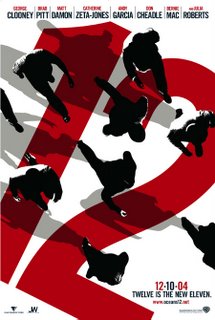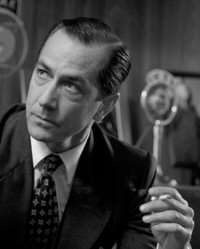 “And so the son becomes a father, and the father becomes a son.”
“And so the son becomes a father, and the father becomes a son.”Surprisingly melancholic, though never dour, Superman Returns is at once a glorious comic book hymn to mythological heroes and a bittersweet meditation on sons assuming the mantles of their fathers while still forging their own unique paths.
The story involves Superman (newcomer Brandon Routh) returning to Earth after disappearing five years previously, to search for the remains of his home planet, Krypton. Things have changed: Lois Lane (Kate Bosworth) has a son, a steady partner (Richard White, played by X-Men alum James Marsden), and a Pulitzer Prize for an article entitled “Why the World Doesn’t Need Superman.” And some things never change. Lex Luthor (Kevin Spacey) is on the loose, cooking up a gargantuan scheme involving personal gain, the destruction of millions of people, and the death of arch-enemy Superman.
Refreshingly, Superman Returns emphasizes plot, character, and subtext at the expense of whiz-bang f/x, and not the other way around, as is usually the case with films like this. A complicated romantic triangle—Lois, White, and Superman/Kent—adds emotional conflict and depth. The father/son relationship between Superman and his dead father Jor-El (Marlon Brando, appearing in outtakes from 1978’s Superman: The Movie), the mantle of responsibility and duty passing on, and the turmoil that can result.
Bryan Singer, who left the X-Men series to helm this film, is the perfect director for Superman Returns. He directs imaginatively, with great feel for character and many stirring, iconic shots such as Superman floating high above the earth, cape billowing out. One brief but impressive shot has Superman in close up slowly turning to face the camera as he rapidly ascends to the sky against the side of a building. Singer obviously has a vivid visual imagination, and he uses digital effects to enhance the action, not replace it. The action sequences are edited with clarity and a feel for space and coherence; we are never lost in spasmodic Moulinex-blender cutting.
Part of the quality Singer imbrues the film with is a pleasant, but at times sad, nostalgia. John Williams’ Superman theme music, resurrected here in John Ottman’s score, still stiffens up the sinews and summons up the blood, but is also a longing for heroes and a simpler age that has passed.
The mythical/religious aspect of the Superman canon is visually referenced many times in Superman Returns. Jor-El, in voiceover, affirms that, because of humanity’s capacity for goodness, he has sent us his only son. In another mythic shot, Superman, like Atlas, carries the world on his shoulders, in the shape of the Daily Planet globe that has fallen from the newspaper’s building in an earthquake. And Superman floating on his back over the Earth, arms outstretched, is an obvious messiah/saviour reference. It is to Singer’s great credit that none of these visual references come across as cornball.
From the opening credits, done in the swooshing style of the 1978 film and scored to its theme, Superman Returns is a smart, stirring mythical epic, that is ultimately a success because it keeps its roots firmly in character and story, and never forgets that the great comic book heroes are legendary archetypes for our modern age.
---
Directed by Bryan Singer
Written by Michael Dougherty & Dan Harris
Based on a story by Bryan Singer & Michael Dougherty & Dan Harris
Based on characters created by Jerry Siegel & Joe Shuster
Starring:
Brandon Routh....Clark Kent/Superman
Kate Bosworth....Lois Lane
Kevin Spacey....Lex Luthor
James Marsden....Richard White
Parker Posey....Kitty Kowalski
Frank Langella....Perry White
Sam Huntington....Jimmy Olsen
Eva Marie Saint....Martha Kent
Marlon Brando....Jor-El (archive footage)




